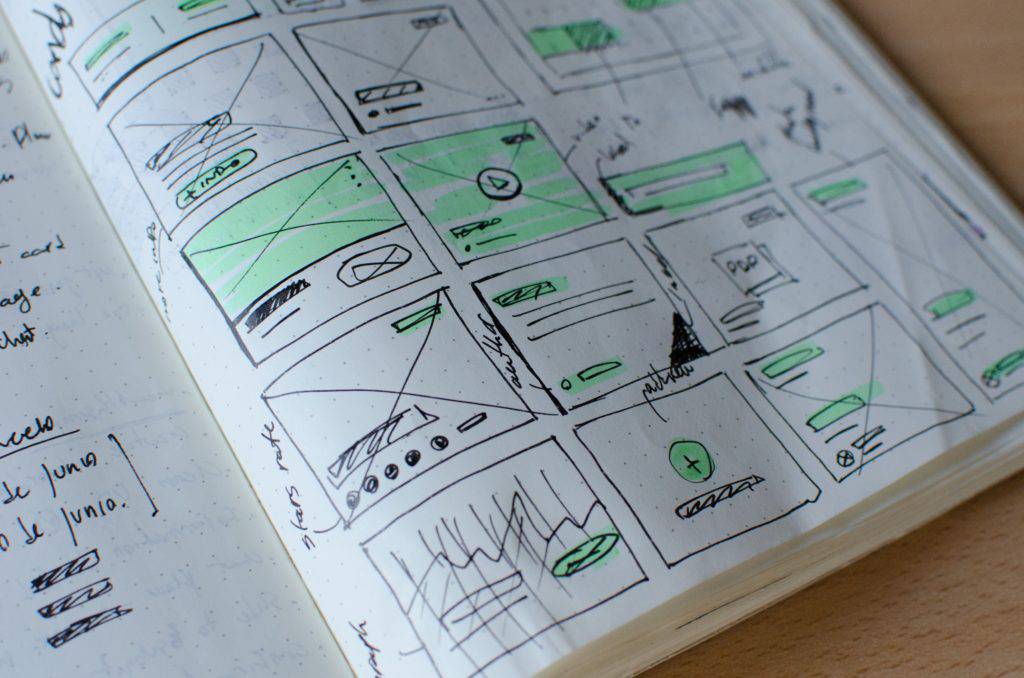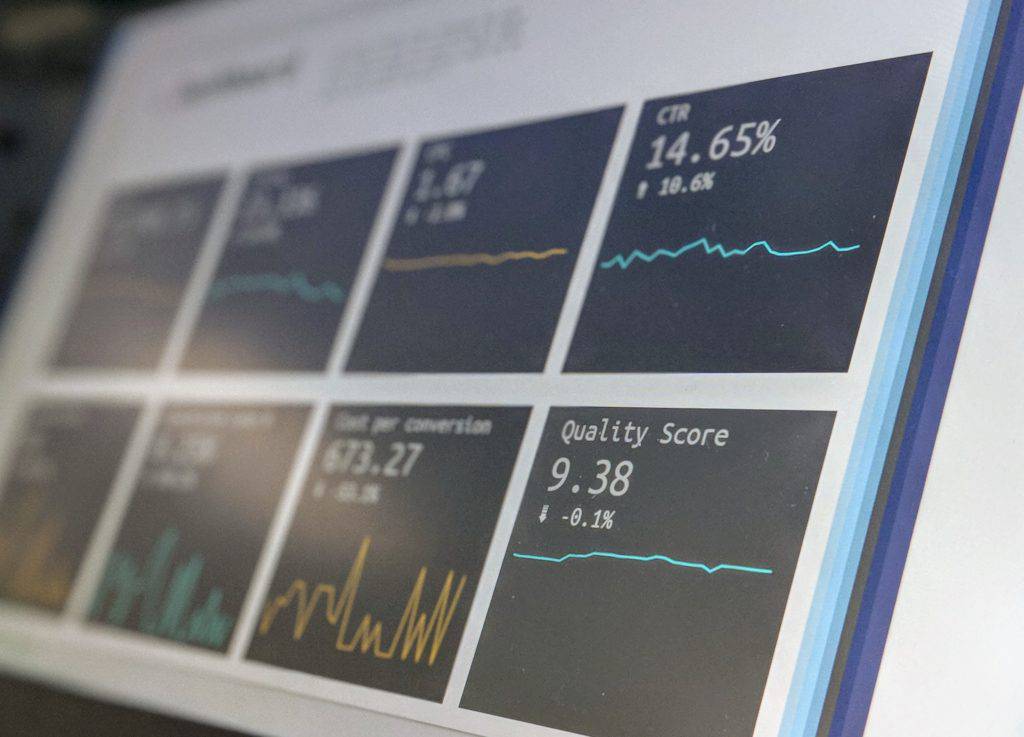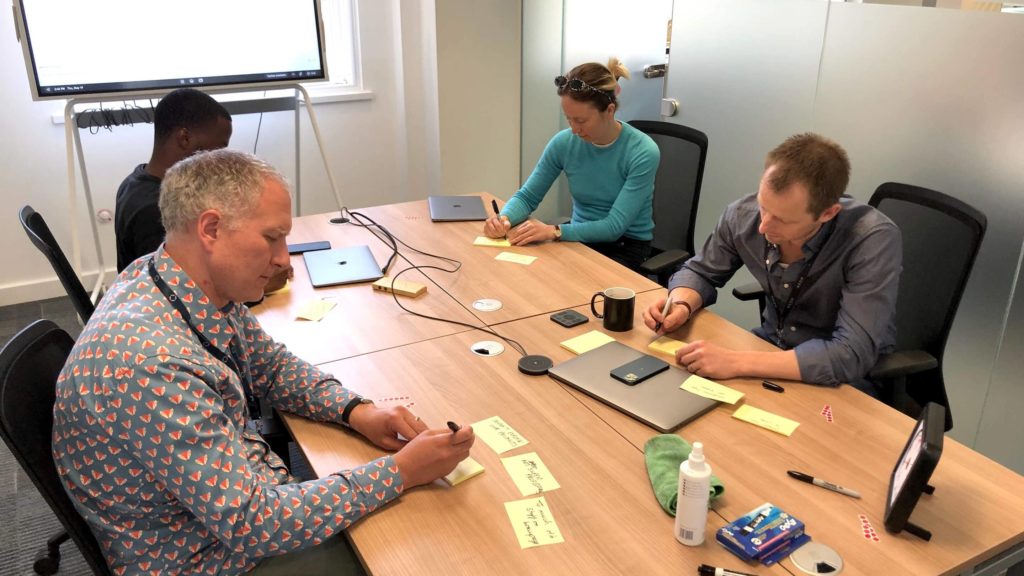Are you asking the right questions about your website?
There are many questions that every business owner and marketers should ask themselves at some points. What makes my product/service stand out from the competition? Do I have the right customers? Am I measuring the right things? These are just some of the issues that are crucial for your business. But why don't we ask similar questions about websites? Here's why you should treat your business site like you treat your product. Written by Dawid ZimnyBrett Nelson from Forbes has published a list of 23 evergreen questions in business. They apply to a variety of aspects of running a company, from the business owner’s mindest to your value proposition.
However, the same questions are rarely asked when building a business website, whether by web agencies or decision-makers themselves. These questions are crucial for our process and here’s why.
Questions to ask when designing a website
What differentiates me from the competition?
A lazy approach to web design caused people to expect a certain website when visiting your business. Many designers apply solutions from other successful websites, or even directly from the competition, without giving it much thought.

That approach is deemed to fail and it will be hard to identify the issue. After all, you have a great website, that one well-known brand uses the same tools and they’re successful, so why is your site failing?
Simply put, it’s not your website. It doesn’t express your unique business; it doesn’t take advantage of what makes you different. Your requirements deserve a bespoke website based on data intelligence and thorough competition analysis.
What is my value proposition?
While this question is often asked, it’s not always asked in the right context, especially if you already have a brick-and-mortar business.
The online audience has slightly different expectations, even if they buy from your local stores interchangeably. This question could also be rephrased to “am I highlighting the right benefits?”
Walking into a physical store doesn’t raise security concerns like visiting a website does. Similarly, you don’t expect to get an additional discount at checkout when shopping traditionally.
Your website doesn’t have to sell to face value proposition issues. When a customer comes to your office to ask about your company, they have less incentive to leave due to a minor inconvenience – they had to reach your office and they’re already there.
Rushing out to go elsewhere could be far from ideal. But that’s what will happen online. If you’re looking to buy a Mac and the first store you find on Google is impossible to navigate, you’re out of there in seconds and the next in line gets a shot at your money.
That’s why it’s important to design your customer journey early in the website build, identifying your unique selling points and customer requirements.
How much power do my customers have?
This is one of the key questions business owners ask themselves but somehow it gets omitted when building a website.
Are your customers likely to buy online? Will they expect a discount for shopping online or are they ready to pay a premium for a convenient service?
Looking at your website from this perspective doesn’t directly influence the web design and web development but is crucial to evaluate its performance later on. Troubleshooting an underperforming website that was built on wrong assumptions can prove to be quite costly.
How committed am I?
Websites are a long-term commitment. No matter how much money you throw at a site, it will take time – especially with organic traffic.
They also require close attention post-launch. Even a simple brochure website shouldn’t be left on its own. Measuring the performance and keeping a close eye on the security are crucial to keeping the investment profitable.
That’s even truer if you were to opt-in for content marketing on your site. Establishing the authority of your company blog, and building a newsletter list or social media following takes just as long – if not longer – as getting your website up to speed.
What is my risk tolerance?

You’ve already got a taste of risks in the previous questions. You have to acknowledge the long-term commitment and the risk of doing something different.
However, especially in data-driven designs, not taking a risk and conforming to the common design standards is often a risk on its own.
Setbacks happen in all business endeavours. It’s important to make educated choices before and after they happen.
What is the purpose of my website?
While it should be one of the first questions you ask yourself, we left it until later on purpose. Your web agency will help you answer that question before embarking on a new project.
However, with the context of previous questions, we want to address what these questions boil down to.
The purpose of your website is to achieve your business goals. That’s obvious. There are many means to achieve them, but when it comes to websites it means you’re building a website for your customers.
It shouldn’t be because you like the design or features. The focus is not on a mouthwatering design. It’s on the performance and return on investment.
This doesn’t mean a boring design by any means. However, there will be compromises you’ll have to make – not on features and performance, but personally. Prepare you might dislike something but keep an open mind about it and remember the purpose of your website.
What is the scope of my project?
A business website, an ecommerce store, a company blog, social media, newsletters… The Web offers an abundance of digital marketing channels.

It’s important to carefully judge which ones you can realistically utilise. Do you have the right people to write regular, quality blog posts? Are your social media updates frequent enough to justify a social media feed on your website?
These questions aren’t intuitive at first, but not answering them can leave you with the functionality you won’t benefit from.
You will be optimising your site if you consider it an investment. If something isn’t necessary now, you can have it added along the way.
Am I thinking big enough?
Or are you not thinking big enough?
These questions will be crucial for organic SEO.
Brett Nelson, Forbes
What’s better: one hundredth of 1% of a $100 billion market, or 25% of a $40 million market? Of course they’re the same in dollar terms, but for whatever reasons capturing that thin slice of a massive pie might be much harder and less profitable than owning a fatter slice of a small one.
We can translate the above quote to search engine optimisation issues. Ranking for highly competitive terms will be hard, long and expensive. And there are no guarantees you’ll reach the first page of Google – not being on the first page is almost like not existing at all.
You won’t be able to figure it out yourself, but it’s a question you should answer together with your web agency.
Am I measuring the right things?
Last but not least, you have to measure success. If you’re asked about the results of your current website and answer “I don’t know”, there’s a good chance your new build or redesign will be a great success.

If you don’t know but you know where to check, that’s better. However, it’s still important to measure the right things. Even if your website proves to be efficient, if you’re not measuring it, your return on investment will ultimately fall off and there won’t be an easy way to fix it.
Measuring success isn’t straightforward even for ecommerce stores. You definitely measure conversions, but do you know what the value of abandoned carts in 2018 or how many people scrolled too far on search result pages, meaning they couldn’t find what they were looking for?
Closing words
A website is an inherent part of modern business. It’s easy to obtain one, but without asking the right questions it becomes merely an expense.
We hope that by translating the everyday business questions to the online world we can help you make your next website project the success your business deserves.
Why CRO Will More than Double Your Sales
Discover the value of optimising your conversions compared to building more landing pages or designing a new website.
Originally published Jul 04, 2019 11:59:55 PM, updated December 11 2023.




Join the conversation
Looking to share your feedback and join in on the conversation?